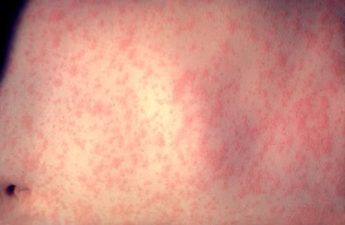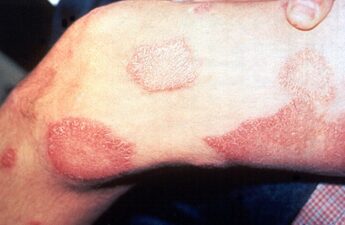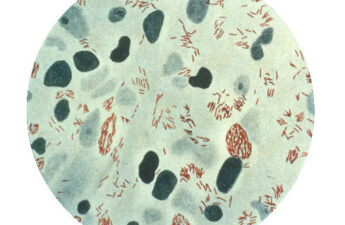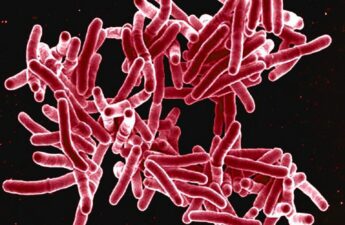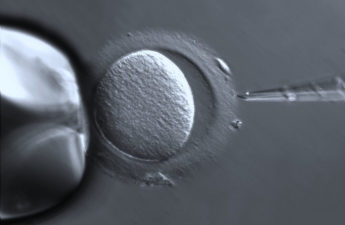Category: Infectious Disease
Infections after surgery are more likely due to bacteria already on your skin than from microbes in the hospital − UW researchers find
Research comparing bacteria in the microbiome – those colonizing our noses, skin and other areas of the body – with the bacteria that cause pneumonia, diarrhea, bloodstream infections and surgical site infections shows that the bacteria living innocuously on our own bodies when we’re healthy are most often responsible for these bad infections when we’re sick.
PUBLIC HEALTH MONITORING MEASLES EXPOSURE AMONG INTERNATIONAL TRAVELERS VISITING SEATTLE
Last week that a group of international travelers visiting Seattle were exposed to an individual with measles prior to arriving in Seattle. Currently, there are no cases of measles among the group (or within King County), but Public Health — Seattle & King County is monitoring the situation closely.
Drugs like Ozempic won’t ‘cure’ obesity but they might make us more fat-phobic
Ironically, while fat people are told they need to lose weight for their health, they are also shamed for “cheating” or taking shortcuts by using medication.
Leprosy cases are rising in the US – what is the ancient disease and why is it spreading now?
The word “leprosy” conjures images of biblical plagues, but the disease is still with us today.
Cardiovascular risks and COVID-19: New research confirms the benefits of vaccination
A new study found that common cardiovascular complications of COVID-19 were substantially reduced in people who were vaccinated, with protective effects lasting up to a year after vaccination.
ASK PUBLIC HEALTH: WHAT ARE THE LATEST RECOMMENDATIONS FOR STAYING AT HOME WHEN SICK?
We sat down with Dr. Eric Chow, Chief of Communicable Disease at Public Health – Seattle & King County to get the latest update and hear what our community can do to continue to prevent illness and what parents, schools, and our community should know.
Leprosy cases are rising in the US – what is the ancient disease and why is it spreading now?
In the United States, leprosy has been entrenched for more than a century in parts of the South where people came into contact with armadillos, the principle proven linkage from animal to humans. However, the more recent outbreaks in the Southeast, especially Florida, have not been associated with animal exposure.
Washington streamlines guidance for COVID-19 and other respiratory illnesses
The Washington State Department of Health announced updated guidance for what to do when someone is sick with COVID-19, flu, respiratory syncytial virus (RSV), and other respiratory viruses.
What is ‘fried rice syndrome’? A microbiologist explains this type of food poisoning – and how to avoid it
Enzo Palombo, Swinburne University of Technology A condition dubbed “fried rice syndrome” has caused some panic online in recent days, after the case of a 20-year-old who died in 2008 was resurfaced on TikTok. “Fried rice syndrome” refers to food…
Tuberculosis cases rise, but public health agencies say they lack the resources to keep up
People think tuberculosis is gone. … It’s here and growing.
Italian-style charcuterie meats linked to Salmonella infections in Washington
State health-officials advise people not to eat Fratelli Beretta Antipasto Gran Beretta purchased from Costco
Viewpoint: Restricting Obese Women From IVF Is Discriminatory
Fertility clinics bar women with obesity from their services, despite the lack of medical evidence for doing so.
This Thanksgiving − and on any holiday − these steps will help prevent foodborne illness
The Centers for Disease Control and Prevention reports that 1 in 6 Americans, or 48 million people, get sick from a foodborne illness each year. According to the CDC, more than 1 million of these people get sick from salmonella, which is the primary pathogen associated with poultry.
Immune health is all about balance – an immunologist explains why both too strong and too weak an immune response can lead to illness
Many social media posts push supplements and other life hacks that “boost your immune system” to keep you healthy and fend off illness. However, these claims are not based on science and what is known about immune function. Healthy immune systems don’t need to be “boosted.” Instead, the immune system works best when it is perfectly balanced.
What is ‘fried rice syndrome’? A microbiologist explains this type of food poisoning – and how to avoid it
A condition dubbed “fried rice syndrome” has caused some panic online in recent days, after the case of a 20-year-old who died in 2008 was resurfaced on TikTok.
“Fried rice syndrome” refers to food poisoning from a bacterium called Bacillus cereus, which becomes a risk when cooked food is left at room temperature for too long.
The 20-year-old college student died after reportedly eating spaghetti that he cooked, left out of the fridge, and then reheated and ate five days later. Although death is rare, B. cereus can cause gastrointestinal illness if food isn’t stored properly. Here’s what to know and how to protect yourself.

